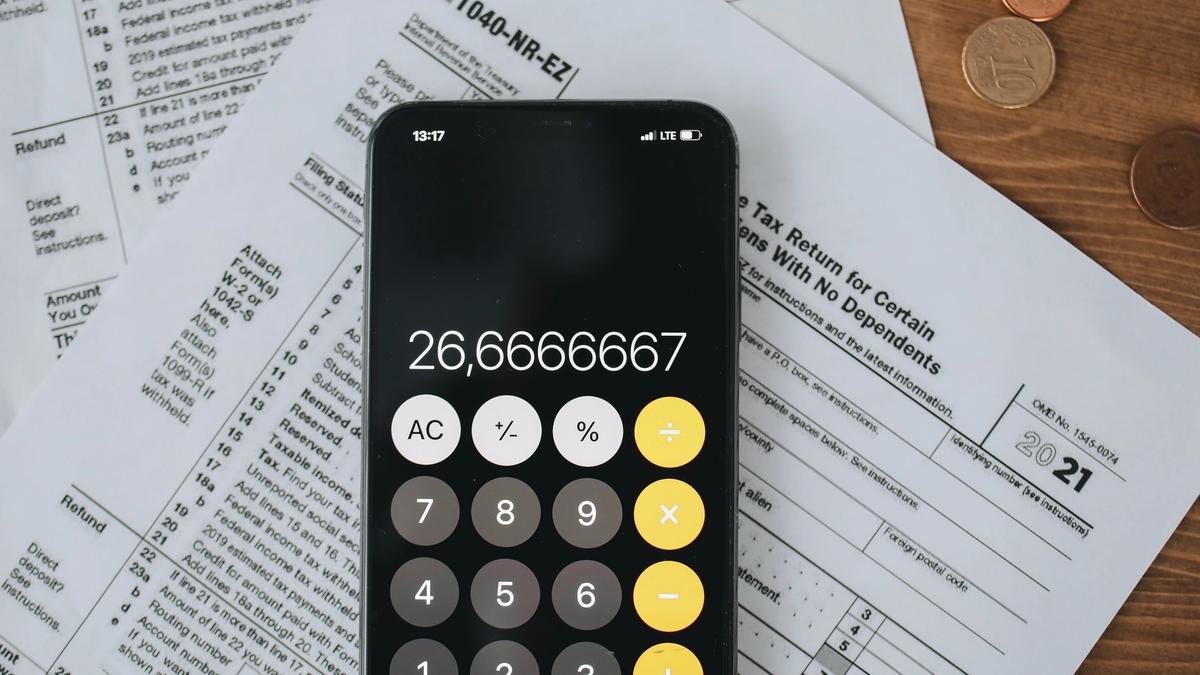You may have received unearned income from a bank account that paid you interest. Or from a brokerage account with dividend-paying stocks. Or maybe you did some freelance work as a freelancer. Or maybe you received unemployment benefits. Each type of non-employment income requires a different version of Form 1099 to report that income to the IRS for tax purposes.
For example, freelancers who earn $600 dlls or more in non-employment income must receive a 1099-NEC and report it on their tax returns. Dividend income is reported on a 1099-DIV, and interest on a 1099-INT.
- Form 1099 is especially used in the U.S.; if you pay a non-U.S. citizen who works remotely overseas, you do not need to file a 1099 for that person. However, if the foreign freelancer performs any work within the United States, you would need to file a 1099. To do so, you must have that foreign freelancer complete, sign and return the W-8BEN form to you.
What is an IRS Form 1099?
A 1099 form is a record that an entity or person other than your employer gave or paid you money. The payer fills out the 1099 form and sends copies to you and the IRS. There are several types of 1099 forms.
What is a 1099 form used for?
The IRS Form 1099 is used to find out how much income you received during the year and what type of income. Depending on the type of income, it will have to be reported in different places on your tax return.
Who receives a 1099 form?
A 1099 form is a record of income. All types of people can get a 1099 form for different reasons. For example, freelancers, independent contractors, and other self-employed people who filled out a W-9 form at the beginning of a business relationship often receive a 1099-NEC from their clients.
A 1099 form will carry your Social Security number or tax identification number, which means the IRS will know that you have received money - and will know it if you don't report that income on your tax return.
Do I need a 1099 form to file my taxes?
Just because you receive a 1099 form does not necessarily mean you owe taxes on that money. You may have deductions that offset the income, or some or all of it may be sheltered depending on the characteristics of the asset that generated it. In any case, remember: IRS knows.
What does 1099 employee mean?
The phrase "1099 employee" generally describes a person who, in the eyes of the IRS, is an independent contractor, also called a freelancer.
Therefore, a 1099 is not the same as a W-2, which reports income paid to employees. If you receive a 1099 from your company, it's a sign that your employer considers you an independent contractor and not an employee. However, workplaces are not the only entities that can send you a 1099.
Types of 1099 forms
There are several types of 1099 tax forms. The IRS refers to them as "information returns." Here's a basic summary of the 1099 Forms you're most likely to have some experience with.
1099-A
You may receive a Form 1099-A if your mortgage lender paid off part or all of your mortgage, or participated in a short sale of your home. This happens because the cancelled debt is income in the eyes of the IRS - and is usually taxable.
1099-B
Form 1099-B covers income from the sale of various types of securities, as well as some types of barter that take place through barter exchanges, usually websites. In that case, the exchange can "1099" for the income you received. A 1099 form is usually not necessary if you barter directly with someone, although you may have to report the income.
1099-C
You don't get off the hook entirely if you convinced a credit card issuer or other lender to settle your debt for less than you owe. The amount the lender forgives is probably taxable income, this is where the 1099-C spells it all out.
1099-CAP
You may receive a 1099-CAP if you own stock in a company that was acquired or underwent a major change in capital structure and you got cash, stock or other assets as a result.
1099-DIV
One of the most common types of this form, the 1099-DIV reports dividends you have received. This does not include dividends from your credit union share account. The IRS considers them interest, so they appear on another 1099: the 1099-INT.
1099-G
If you received money from the state, local or federal government - including a tax refund, credit or offset - you may receive one of these. If you have been unemployed during the year, you may also receive a 1099-G.
1099-INT
If you earned more than $10 (DLLS) in interest from a bank or other financial institution, you will receive a 1099-INT.
1099-K
If in 2022 you received business income of $20,000 or payments for goods and services by credit card or a third-party payment system (e.g., Venmo, Cash App), and there were more than 200 transactions, you will be sent a summary of those payments on a 1099-K. In 2023, the IRS is lowering the filing threshold to $600 dlls.
1099-LTC
If your long-term care insurance paid you benefits during the year, the insurer will likely forward Form 1099-LTC. If you received accelerated death benefit payments from a life insurance policy, which are reported on this form, also.
1099-MISC
This is the form used for income that does not fit into other 1099 categories, although it does have some specific purposes. For example, income from prizes and awards.
1099-NEC
In 2020, the IRS launched the 1099-NEC, which businesses now use to report money paid to people who did work for them, but were not employees. In other words, if you worked as a freelancer, your clients should have sent you a 1099-NEC form instead of a 1099-MISC form earlier this year.
1099-OID
You may receive a Form 1099-OID if you purchased bonds, notes or other financial instruments at a discount from face value or redemption value at maturity. Normally, the instrument must have a maturity of more than one year.
1099-PATR
If you belong to a credit union and received at least $10 in patronage dividends, you will see Form 1099-PATR come to you.
1099-S
Anyone responsible for closing a sale or exchange of real estate provides you with this statement, reporting the income. Again, income from the sale of your home or other real estate is not necessarily taxable, so do your homework.






